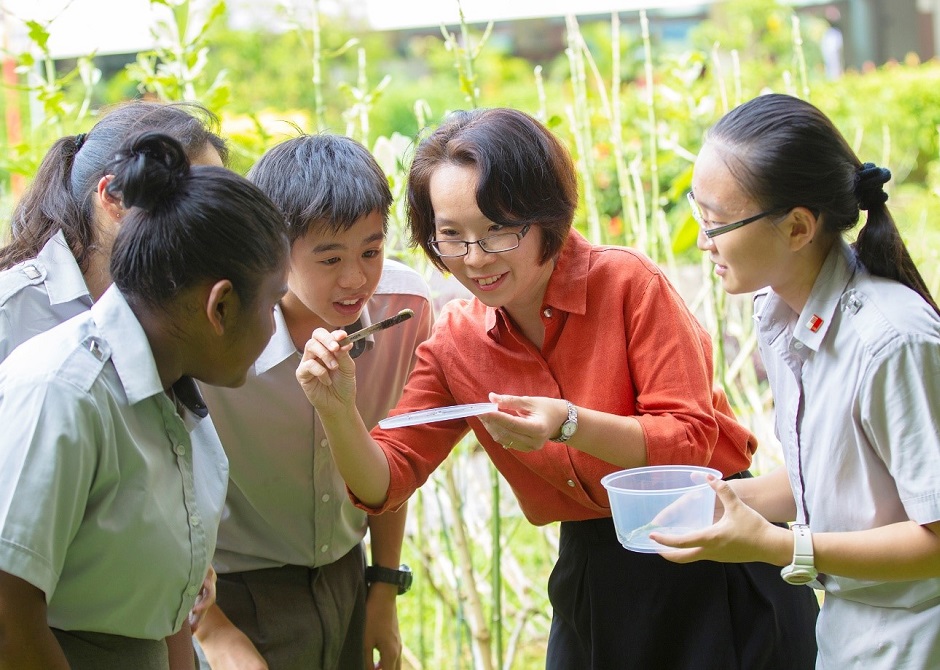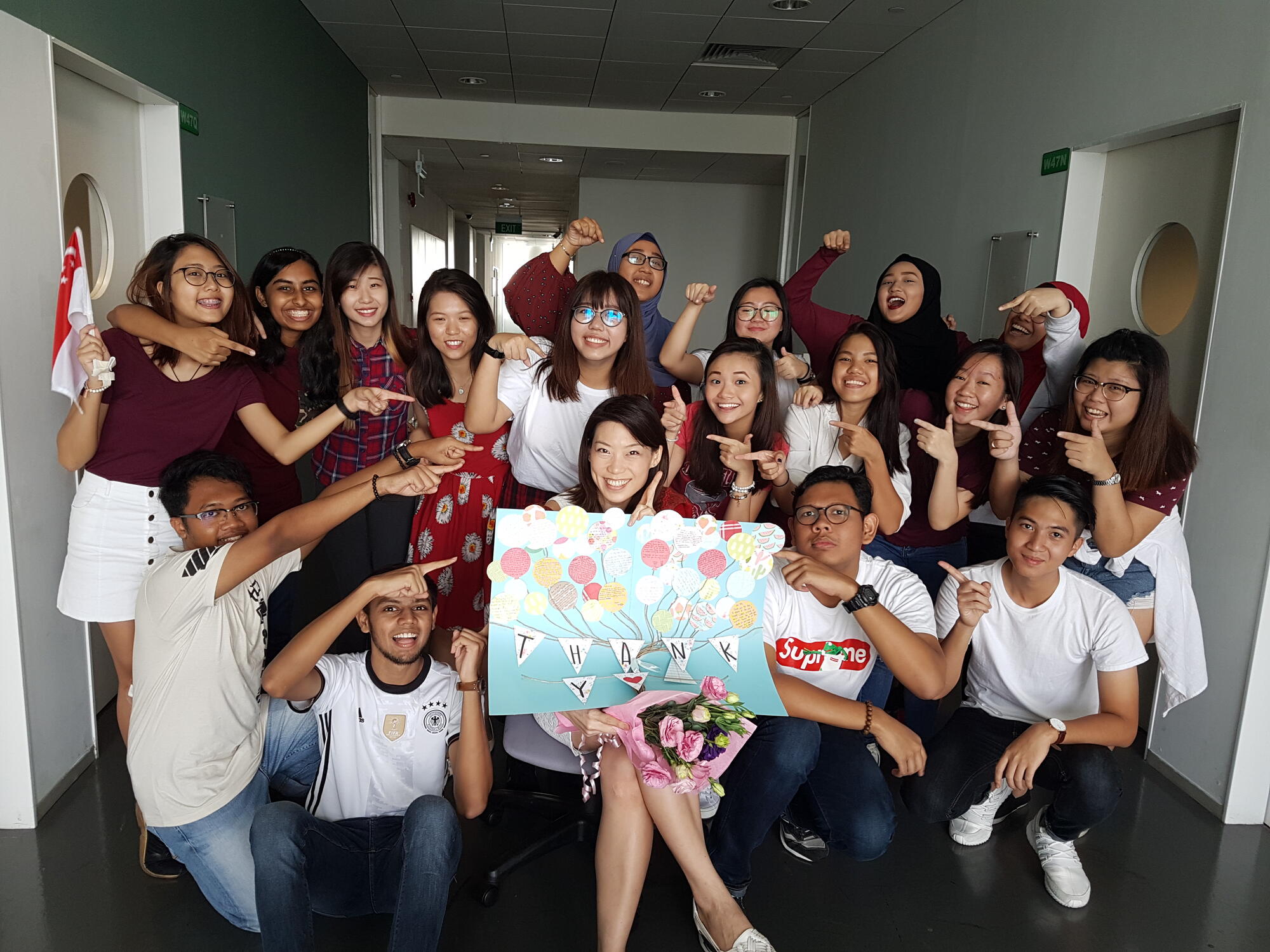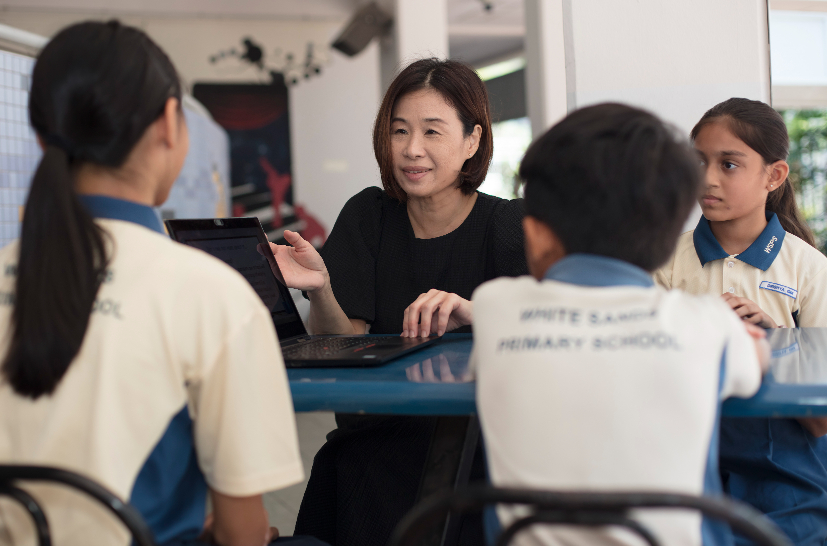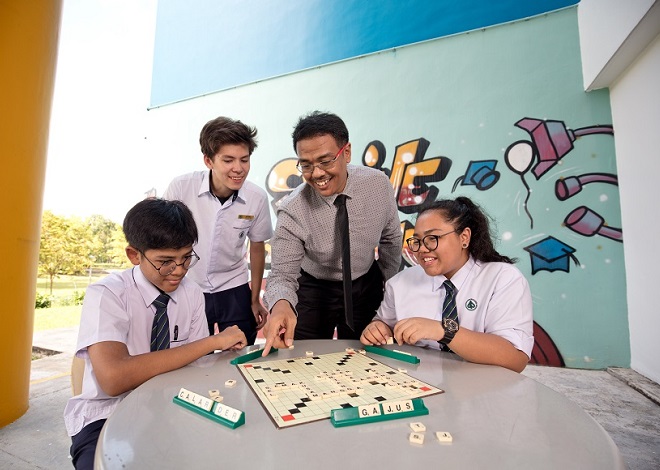Ms Lim Yi-En, National Junior College, President’s Award for Teachers 2018 Recipient
Ms Lim Yi-En is an English language teacher, but you may not know it from stepping into her classes.
One day, she could be using algebraic equations to help students understand the basic rules of the English language such as tenses and sentence structure.
The next, she could be getting her students to examine the issues facing senior citizens, pulling together health and science research, social implications, and emotional factors in their analysis and arguments.
You may also find her asking them to interview elderly relatives on how Singapore has changed over the years, for historical fiction writing. The purpose: “I want to give them a sense of what they have inherited, what they are stewards of and where to go from here. I also wanted the children to reconnect with the people at home.”
Yi-En does all this because she believes that language, as a means of communication, pervades all disciplines.
Connecting with audiences
But language is about connecting with listeners and readers too. Even as she incorporates other subjects into her English language lessons, she advises her students to never assume their audiences share their knowledge, and to tailor their language accordingly.
She gives the simple example of the butterfly garden in the school, which she started with another colleague to promote better ecological awareness among her students.
To keep the garden looking its best, the gardener would spray the plants with an insecticide which killed the caterpillars Yi-En was trying to cultivate. She explained to him that these caterpillars were key to the garden’s success. So he avoided them the next time, but continued spraying everything else, keeping the butterflies away and killing the developing pupae.
“The gardener didn’t quite understand the life cycle of butterflies,” Yi-En explains, acknowledging that she could have done more to prevent the miscommunication.
She uses this anecdote to encourage her students to develop both the vocabulary and instincts to be confident in dealing with the many types of people and situations they would encounter in the future.
They need to be able to connect with their audience to know what information is required at a particular time. “A scientist will be more concerned with the numbers and the facts. The lay person may need just a basic understanding of the subject being discussed. So students need to know what information is required by their particular audience and how to present it in the most appropriate way,” she says.
“The English language that our students learn in school is just one variety of the language, but it is not the variety that is suitable for use in every context. They need to be equipped with enough different varieties so they are ‘operationally-ready’ anywhere.”
Speaking up and thinking more
Yi-En finds that getting her students to voice alternative viewpoints can sometimes be quite a challenge. Some of them have been conditioned to speak only when asked a question, and many are hesitant to voice a contrary opinion at the risk of offending their friends.
So she tells them: “no-one is going to take offence if you direct your query at the information, and not the person,” and helps them phrase their points more delicately.
Another issue Yi-En grapples with is her students’ attention spans. Because teenagers spend plenty of time on social media and instant messaging, they rarely have to read beyond a sentence at a time. This affects their ability to digest more complex information.
“Often they can’t process more than a few words at a time and they can’t hold a thought for long,” she says. “When they look at questions, they pick up a few key phrases and in their own minds, they make up the question. So their answers may not address what the question actually requires.”
To counter this, she slows down in class and spends time helping students analyse and understand the questions in their assignments. This way, their responses become more accurate. Yi-En takes this effort even though she acknowledges “it is not natural for this generation to go slow”.
She shares these methods with her colleagues, working with them to develop lesson plans to help students think strategically while processing the information being taught. “I’m focused on how they can work critical thinking into their lesson plans – being the focal point of the lessons, rather than just being incidental.”
She wants to turn her students into confident speakers and users of English. “Like I always tell my students — language is a vehicle without which you can’t go anywhere.”
“Although not one of my academic teachers, she has helped me with my Language Arts subjects as I was quite weak in this area. While most teachers just give you the answers to such passages, Dr Lim taught me various techniques on how to analyse questions and structure my answers in a succinct way. She has also boosted my self-confidence.” – Jacqueline Tan, Secondary 4 (Integrated Programme)






